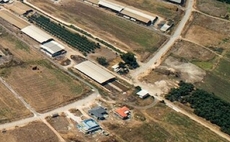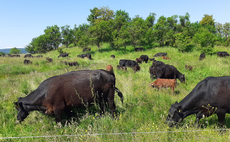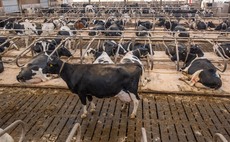
The aspects of nutrient management to be covered include the role of soil in nutrient supply, managing soil structure, pH and soil organic matter, as well as minimising nutrient losses from the soil.
Each year, FACTS qualified advisers are required to undertake an online assessment on a specific topic to maintain their status on the BASIS Professional Register.
The topic has been selected by the FACTS management committee as an area of considerable interest amongst farmers and advisers in recent times.
In devising the study programme, the aim has to be to equip FACTS qualified advisers to be able to deal with the wide range of issues connected with soil from a sound and up-to-date knowledge base.
"The aim is to provide science-based information to help ensure FACTS advisers give sound advice based on key points of the issues," says Ian Richards who runs the FACTS advice scheme.
Structure
The aspects of nutrient management to be covered include the role of soil in nutrient supply, managing soil structure, pH and soil organic matter, as well as minimising nutrient losses from the soil. It draws on material including the Nutrient Management Guide (RB209) as well as material from AHDB's Great Soils project. It also takes into account the relevant national and devolved legislation that is applicable.
Amongst the detail considered are ways to assess soil structure, to identify problems - such as capping, pans and poaching - and how to change structure through cultivation techniques and the application of organic matter. A section on the effects of the increasingly common reduced cultivation techniques on soil nutrients and biology also features.
With increased interest in managing soil organic matter, the assessment looks at how to assess organic content, sources of organic matter, and the application and timing of manures. The impact of rotations and cover crops is also considered.
Losses
Environmental and financial effects of nutrient losses through leaching, erosion and gases are dealt with, alongside options minimise such losses.
Soil pH can affect crop yield and quality. The online assessment looks at the effectiveness of various materials as well as how to structure liming recommendations in relation to soil test results.
Training for the course can be obtained via BASIS approved trainers and a BASIS Classroom module will be launched in the near future as an alternative means to prepare for the online assessment.
FACTS qualified advisers have until May 30, 2024 to complete the assessment, although some keen members of the register have already completed the task.
In addition to the agriculture and vegetable online assessment, there are separate assessments available for advisers working in horticulture and turf. The horticulture theme for 2023/24 is ‘nutrient use for growth and quality', whilst the turf specialism theme is ‘nutrient use for turf growth and quality'.
Details of all FACTS online assessments can be found on the BASIS website - www.basis-reg.co.uk























